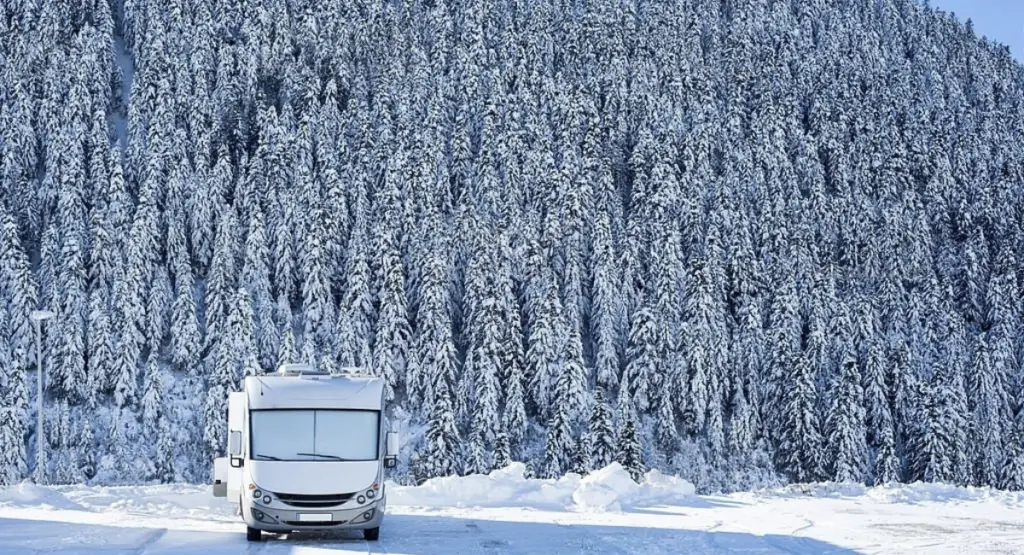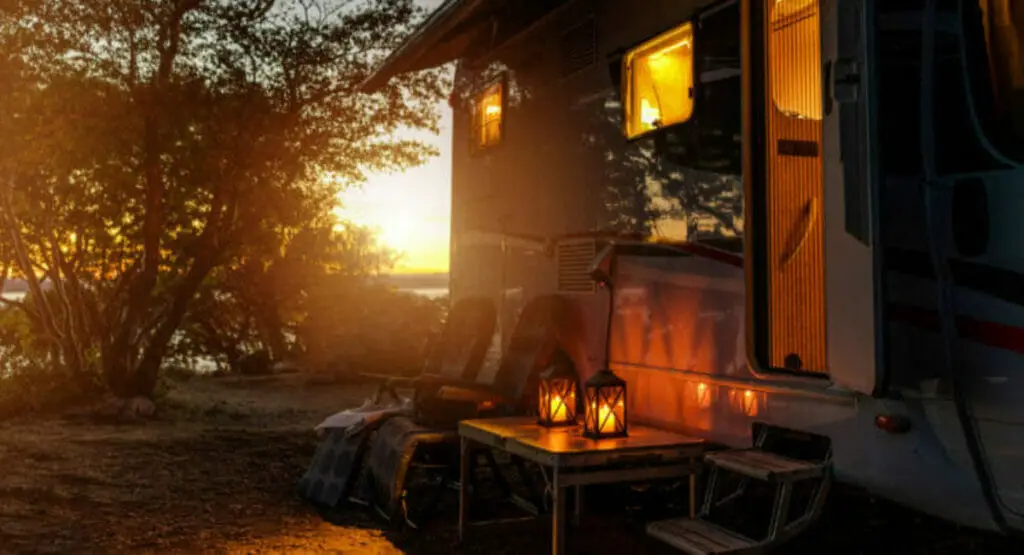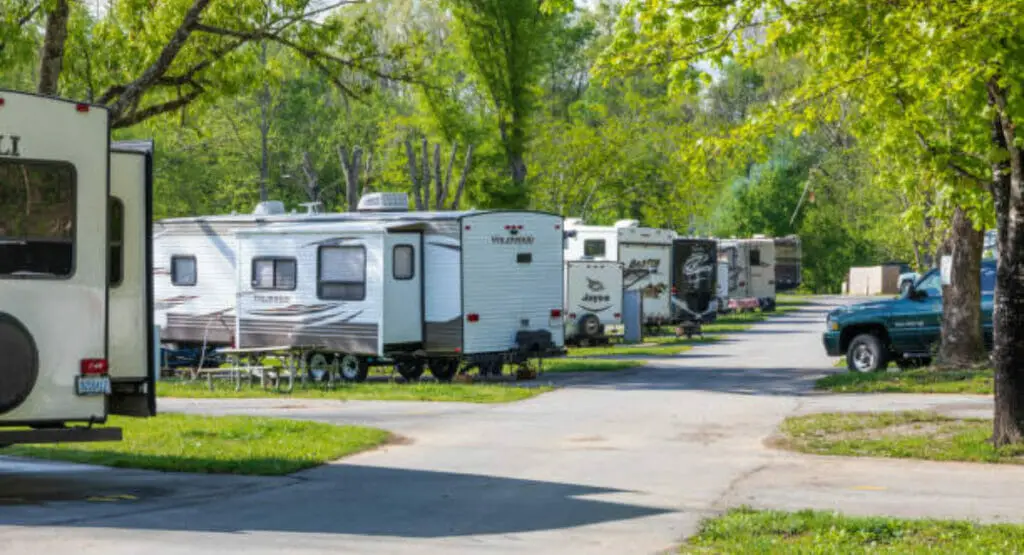Living in a camper during winter presents a unique set of challenges and opportunities. It’s a lifestyle choice that offers freedom, flexibility, and a closer connection to nature. However, it also requires careful planning, preparation, and consideration of safety measures to ensure a comfortable and secure living environment, especially when temperatures drop and snow blankets the landscape.
Choosing the Right Camper
Selecting the appropriate camper for winter living is paramount to your safety and comfort. Look for models with robust insulation, double-pane windows, and weather-sealed doors to minimize heat loss and drafts. Consider the size of the camper, ensuring it provides enough space for storage, living, and sleeping areas without feeling cramped.
Insulation Quality
The quality of insulation in your camper plays a significant role in maintaining a consistent indoor temperature and reducing energy consumption. Opt for campers with high-quality insulation materials such as closed-cell foam or fiberglass batts, which offer superior thermal resistance and moisture control properties.
Four-Season Campers
Four-season campers are specifically designed to withstand extreme temperatures, making them ideal for winter living. These campers feature enhanced insulation, heated holding tanks, and upgraded heating systems to ensure comfort and functionality even in the coldest climates.
Preparing Your Camper for Winter
Before the onset of winter, take proactive steps to prepare your camper for the challenges ahead. Conduct a thorough inspection to identify and address any potential issues, from roof leaks to malfunctioning heating systems. Here are some essential tasks to include in your winterization checklist:
Sealing Drafts
Seal any gaps or cracks around windows, doors, and vents to prevent cold air infiltration and heat loss. Use weather-stripping, caulk, or foam insulation to create a tight seal and enhance the efficiency of your camper’s insulation.
Winterizing Plumbing
Protect your camper’s plumbing system from freezing by draining water tanks, blowing out water lines with compressed air, and adding antifreeze to drains and traps. Insulate exposed pipes and hoses with heat tape or foam pipe insulation to prevent them from freezing and bursting in cold temperatures.
Snow Removal
Regularly remove snow and ice buildup from your camper’s roof, awnings, and slide-outs to prevent excess weight and potential damage. Use a soft-bristled brush or snow rake to gently clear snow without scratching or denting the surface of your camper.
Safety Considerations
Living in a camper during winter requires careful attention to safety considerations to mitigate risks and ensure your well-being. Here are some important safety tips to keep in mind:
Carbon Monoxide Detection
Install carbon monoxide detectors in your camper to alert you to any buildup of this odorless, colorless gas, which can be produced by propane heaters, stoves, and generators. Place detectors near sleeping areas and test them regularly to ensure they’re functioning correctly.
Fire Safety
Minimize the risk of fire by following proper safety protocols when using heating appliances, cooking equipment, and electrical devices in your camper. Keep flammable materials away from heat sources, never leave cooking unattended, and have a fire extinguisher readily accessible in case of emergencies.
Emergency Communication
Stay connected with reliable communication devices such as a cell phone, two-way radio, or satellite phone to reach out for help in case of emergencies. Share your itinerary and travel plans with trusted contacts and check in regularly to keep them informed of your whereabouts.
Conclusion
Living in a camper during winter can be a rewarding and enriching experience, allowing you to embrace the beauty of the season and explore new adventures on the road. By selecting the right camper, preparing for winter conditions, and prioritizing safety measures, you can enjoy a safe, comfortable, and memorable winter living experience in your mobile home.
FAQs
Q: How can I prevent my camper’s pipes from freezing in winter?
A: Preventing frozen pipes in your camper requires insulating exposed pipes, draining water tanks, and adding antifreeze to plumbing fixtures. Take proactive measures to protect your camper’s plumbing system from the cold to avoid costly damage and repairs.
Q: What should I do if my camper’s heating system malfunctions during winter? A: If your camper’s heating system malfunctions in winter, prioritize safety by shutting off the heating source, bundling up in warm clothing and blankets, and seeking alternative shelter if necessary. Contact a qualified technician to diagnose and repair the issue as soon as possible.
Q: Are there any legal restrictions or regulations regarding winter camping in certain areas?
A: Yes, some regions may have specific regulations or restrictions regarding winter camping, such as seasonal closures, campground rules, or bans on open fires during high fire danger periods. Research local ordinances and regulations before embarking on winter camping trips to ensure compliance and avoid fines or penalties.
Q: How can I conserve energy and reduce heating costs while living in a camper during winter?
A: Conserving energy and reducing heating costs in your camper during winter involves implementing energy-efficient practices such as using thermal curtains, insulating windows and doors, and utilizing space heaters or electric blankets to supplement heating. Additionally, minimizing heat loss by sealing drafts and optimizing insulation can help lower energy consumption and save on heating expenses.
Q: What safety precautions should I take when traveling in winter conditions with my camper?
A: When traveling in winter conditions with your camper, prioritize safety by checking weather forecasts, planning your route in advance, and equipping your vehicle with snow chains or winter tires if necessary. Drive cautiously, maintain a safe following distance, and be prepared for potential hazards such as black ice, snow drifts, and reduced visibility.
Q: Are there any additional tips for staying warm and comfortable while living in a camper during winter?
A: To stay warm and comfortable in your camper during winter, consider investing in cold-weather gear such as insulated clothing, sleeping bags rated for low temperatures, and electric blankets or heated mattress pads. Layer clothing for added warmth, use hot water bottles or microwaveable heating pads to warm up your bed, and limit exposure to cold drafts by sealing windows and doors with draft stoppers or weather-stripping.



